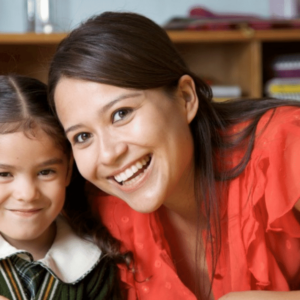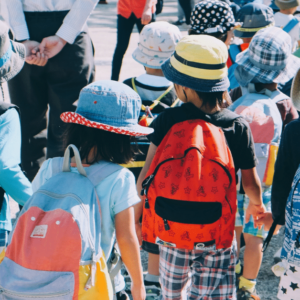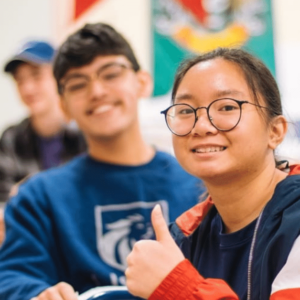In This Together: Culturally Responsive Practices for Multilingual Students
$22.00

Course Type: Video – 90 minutes ASHA Course Code: Diversity, Equity, & Inclusion – 7030
How can we hone our skills to provide culturally responsive assessments, effective interventions, and better professional collaboration when our students come from diverse backgrounds? By incorporating the goals of the entire educational team, relying on everyone’s expertise, and working together.
Join Dr. Linda Rosa Lugo as she shares some great inclusive support strategies and culturally responsive approaches that can be implemented when you are working with students from culturally and linguistically diverse backgrounds.
Additional Information
| Population | Early Childhood, School Age |
|---|---|
| Duration | 1.5 hours |
| Credit | .15 Continuing Education Units |
| Topics | Diversity, Equity, & Inclusion (DEI), SLP Professional |
| Format | Video |
Dr. Linda I. Rosa-Lugo, Ed.D., CCC-SLP, ASHA Fellow
and invited Guest: Tiffany White, ASHA, Senior Director, School Services
Dr. Linda I. Rosa-Lugo, EdD, CCC-SLP, is a distinguished professional in the field of Speech-Language Pathology. She is an ASHA Fellow and a Board-Certified Specialist in Child Language. Her contributions to the field have been recognized with ASHA’s international achievement and diversity awards. In her leadership roles, she has served as the past ASHA Vice President for Speech-Language Pathology.
Currently, Dr. Rosa-Lugo serves as clinical faculty in the School of Health Professions at SUNY–Stonybrook University and mentors students in the Communication Sciences and Disorders program at MGH Institute of Health Professions. She retired from the University of Central Florida (UCF) in 2022 after holding multiple roles over 27 years, including associate dean in the College of Health Professions and Sciences, founding director of the UCF Listening Center, and faculty member in the School of Communication Sciences and Disorders.
Her career is characterized by diverse experiences across various practice settings. She has worked extensively in public schools as a speech-language pathologist, classroom teacher, and district administrator in both New York and Florida. As a bilingual SLP and teacher, she has a special focus on children who are deaf or hard of hearing.
Dr. Rosa-Lugo is a strong advocate for interprofessional practice and education, promoting collaboration across disciplines. Her research, collaborative grants, and publications consistently focus on language, literacy, and intervention for multilingual populations, particularly students with hearing loss. Her ongoing teaching, clinical work, and scholarship continue to serve diverse populations and address critical issues in education, health, and literacy.
FINANCIAL: Linda I. Rosa-Lugo, Ed.D, CCC-SLP received an honorarium from Bilinguistics for her presentation. She holds the position of Clinical Associate Professor at Stony Brook University.
NON-FINANCIAL DISCLOSURE: No relevant nonfinancial relationship exist.
This presentation highlights the significance of collaboration among educators, including both monolingual and bilingual SLPs, in developing and applying culturally responsive strategies for multilingual students. It promotes the importance of united efforts and expertise to address language, culture, disability and inclusive support strategies for multilingual learners in the school setting.
As the number of multilingual students in schools continues to rise, the roles and responsibilities of Speech-Language Pathologists (SLPs) are undergoing significant changes. It’s becoming increasingly important for educational institutions to differentiate between language differences, which are a natural part of the multilingual experience, and language disorders, which require professional intervention. The cultural and linguistic diversity among students is expanding, necessitating a unique set of competencies from educators to provide appropriate support. Both monolingual and bilingual SLPs must understand the complex interplay of language, culture, and disability when working with multilingual students.
SLPs serve as gatekeepers to their school’s educational teams. They play a pivotal role in raising awareness about how cultural factors and the process of acquiring additional languages can impact learning. Without this understanding, there could be a disproportionate identification of students for special education. Therefore, it’s essential for SLPs to be aware of the factors to consider when supporting multilingual students. They must understand the importance of implementing culturally responsive practices within the educational setting. Collaboration among SLPs and their educational team members is key to understanding the needs of multilingual students and implementing culturally responsive practices in the educational setting. The collective efforts of educators are vital in enhancing the educational experience of multilingual students, promoting inclusivity, and fostering a supportive learning environment. This presentation is designed to provide monolingual and bilingual SLPs with practical strategies and considerations for their assessments and interventions. The goal is to enable them to accurately identify students with language disorders.
Participants will be able to:
• Analyze the intersection of language, culture, and disability, recognizing the complex dynamics that multilingual students navigate.
• Identify/describe culturally responsive strategies in their work with multilingual students
• Identify the distinct roles of monolingual and bilingual Speech-Language Pathologists (SLPs) in working with multilingual students, appreciating the unique contributions each can make in a school setting.
• Recognize the importance of collaboration among educators, understanding how collective efforts can enhance the educational experience of multilingual students.
Time-Ordered Agenda
10 minutes Introduction
15 minutes Understanding Multilingual Students, Definition of Multilingualism, Benefits and Challenges of Multilingualism, Common Misconceptions
20 minutes Addressing Language, Culture, and Disability, Understanding the Intersection of Language, Culture, and Disability, Inclusive Support Strategies for Multilingual Learners, Case Study: Overcoming Barriers
20 minutes Culturally Responsive Strategies, Definition and Importance of Culturally Responsive Practices, Practical Strategies for Implementation, Case Study: Culturally Responsive Practice in Action
15 minutes The Role of Collaboration Within the School Setting, Importance of Collaboration among Educators, Role of Monolingual and Bilingual SLPs. Case Study: Successful Collaboration
10 minutes Conclusion and Moderated Q&A, Future Implications, Questions, and Discussion
Need CEUs?

 Share
Share
 Tweet
Tweet
 LinkedIn
LinkedIn
 Pin
Pin
 Email
Email





